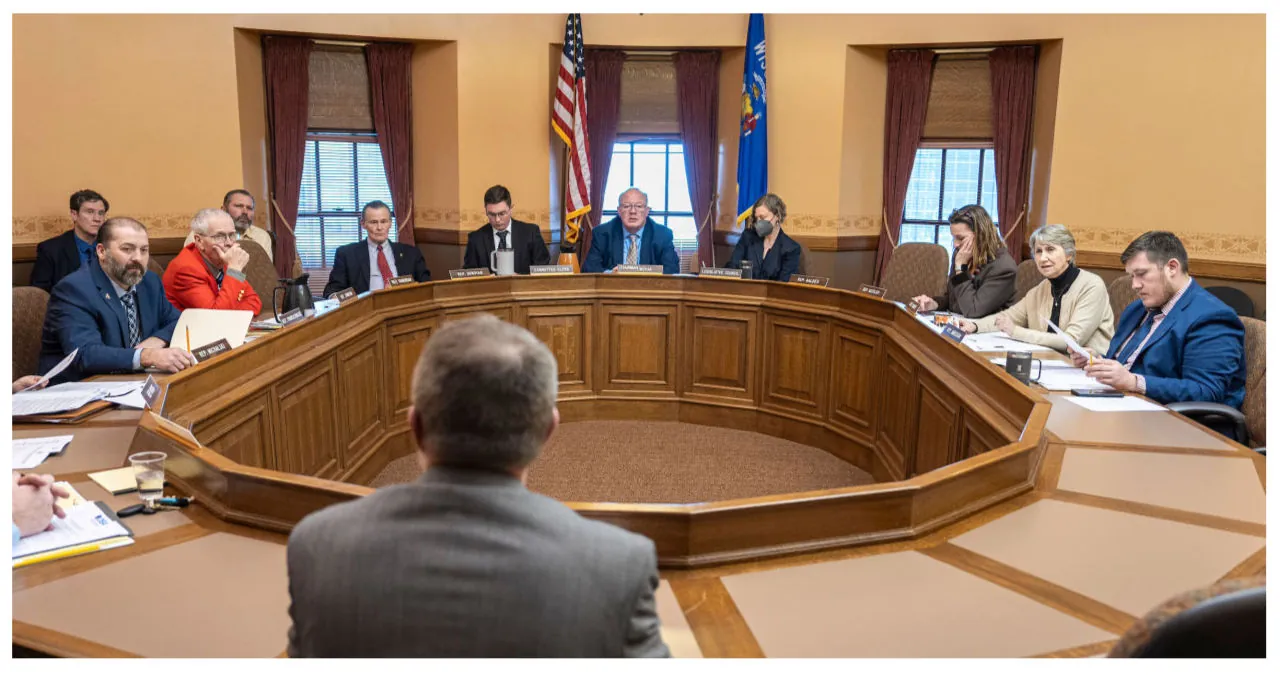A Republican bill would bar local governments from implementing stricter rules than the state already imposes regarding animal welfare, the administration of medications and vaccinations and how animals are used at or after they leave a farm or facility.
-
- Proponents say the measure is needed to prevent restrictive “laws enacted in other states finding their way to Wisconsin,” but they haven’t cited specific local ordinances they are targeting within the state.
- Critics worry the measure will erode local control beyond animal welfare and health issues.
Republican state lawmakers are suggesting limitations to the ability of local authorities to regulate farms and other animal facilities located in agriculturally zoned areas in Wisconsin.
Assembly Bill 957, also known as the “Protect our Farms Act,” aims to prevent cities, villages, towns, and counties from enforcing regulations that exceed the existing state standards on animal welfare, medication and vaccination administration, and the treatment of animals both on and off farms or facilities.
Supporters argue that this measure is necessary to safeguard Wisconsin from adopting restrictive laws implemented in other states. They believe that such laws could potentially place the state’s agriculture industry at a disadvantage when competing with other regions.
During a recent hearing of the Assembly Committee on Local Government, Rep. Treig Pronschinske, R-Mondovi, emphasized the unwavering dedication and work ethic of farmers in our state. As a co-author of the bill, Pronschinske argued that it would be cruel to impose unnecessary laws that harm the agricultural community.
Sen. Romaine Quinn, a Republican from Cameron, has introduced the same bill in the Wisconsin Senate. Unfortunately, despite multiple requests for comment, he has not responded.
But there are concerns among critics that this measure will go beyond addressing animal welfare and health issues and undermine local control. Among the skeptics of this bill are residents and property owners in northwest Wisconsin who value the local regulations in place to mitigate the impact of large livestock farms on their quality of life. They argue that this bill could open up a Pandora’s box, potentially unraveling any safeguards against the potential health, economic, and environmental risks associated with concentrated animal feeding operations (CAFOs).
Attorney Andy Marshall, a property owner in Trade Lake who co-authored a model CAFO ordinance adopted by multiple Wisconsin towns, highlighted the incremental approach taken to avoid drawing attention and raising concerns.
Local governments would be prohibited from regulating the animal species that facilities are allowed to raise under the proposed legislation. Additionally, they would not be able to enforce any existing rules that contradict the provisions of the bill, unless the regulated activity poses a significant risk to public health or safety.
The co-sponsorship memo for the bill references a contentious California law that bans the sale of pork, eggs, and veal from animals raised in cramped conditions. However, it fails to mention any specific local regulations in Wisconsin that the bill aims to nullify.
During the bill hearing, Chad Zuleger, the director of government affairs at the Dairy Business Association, was unable to identify any local ordinances in Wisconsin that could potentially be invalidated.
Several other GOP legislators have expressed their support for the measure, along with notable organizations such as the Wisconsin Biomedical Research Coalition, Wisconsin Corn Growers Association, and Wisconsin Bear Hunters Association. Additionally, the Wisconsin Farm Bureau Federation, Wisconsin Association of Meat Processors, and Midwest Food Products Association Inc. are among the supporters.
AV Roth, a member of the Wisconsin Pork Association board and owner of a 3,000-sow farm in Crawford County, emphasizes the negative impact of piecemeal regulations on farmers. He highlights the challenges faced by farmers whose farms span multiple municipalities and are subjected to inconsistent regulations, which creates uncertainty and instability in their operations.
During the hearing, he explained that he decided to postpone the expansion of his swine herd due to the uncertainty created by the California law. He also expressed concerns about the possibility of Wisconsin municipalities imposing similar burdensome regulations on his concentrated animal feeding operation (CAFO).
Animal welfare organizations, such as the Humane Society of the United States and Animal Wellness Action, are against the measure. According to the latter group, the proposal only serves to protect unscrupulous actors, such as puppy mills.
According to Adam Voskuil, an attorney at Midwest Environmental Advocates, the measure is described as “ominous” but is relatively limited in scope.
According to his prediction, industry groups with a tendency to file lawsuits might use this legislation as a means to threaten legal action against local governments that try to implement broader regulations on farming.
However, there are still some skeptics who worry that it could have a more significant impact, setting a precedent that could harm the few existing ordinances for concentrated animal feeding operations (CAFOs) in Wisconsin. These ordinances have already faced legal disputes and threats.
Trade Lake, a town in northwest Wisconsin, has implemented an ordinance that mandates new farms with 500 animal units or more to obtain a permit. This permit regulates various aspects such as waste management, animal health and mortality, water usage, and air pollution. The decision to adopt these regulations came after the town was faced with a developer’s proposal to build the largest pig breeding farm in Wisconsin within its boundaries.
The nonprofit organization, Wisconsin Watch, collaborates with WPR, PBS Wisconsin, other news media, and the University of Wisconsin-Madison School of Journalism and Mass Communication (www.WisconsinWatch.org). It is important to note that all works created, published, posted, or disseminated by Wisconsin Watch do not necessarily reflect the views or opinions of UW-Madison or any of its affiliates.
A proposed bill in Wisconsin seeks to restrict the authority of local communities in matters relating to animal welfare. This development was reported by Wisconsin Watch, a non-profit investigative news site that has been providing comprehensive coverage of Wisconsin since 2009. We encourage you to contribute to support our journalism efforts.

